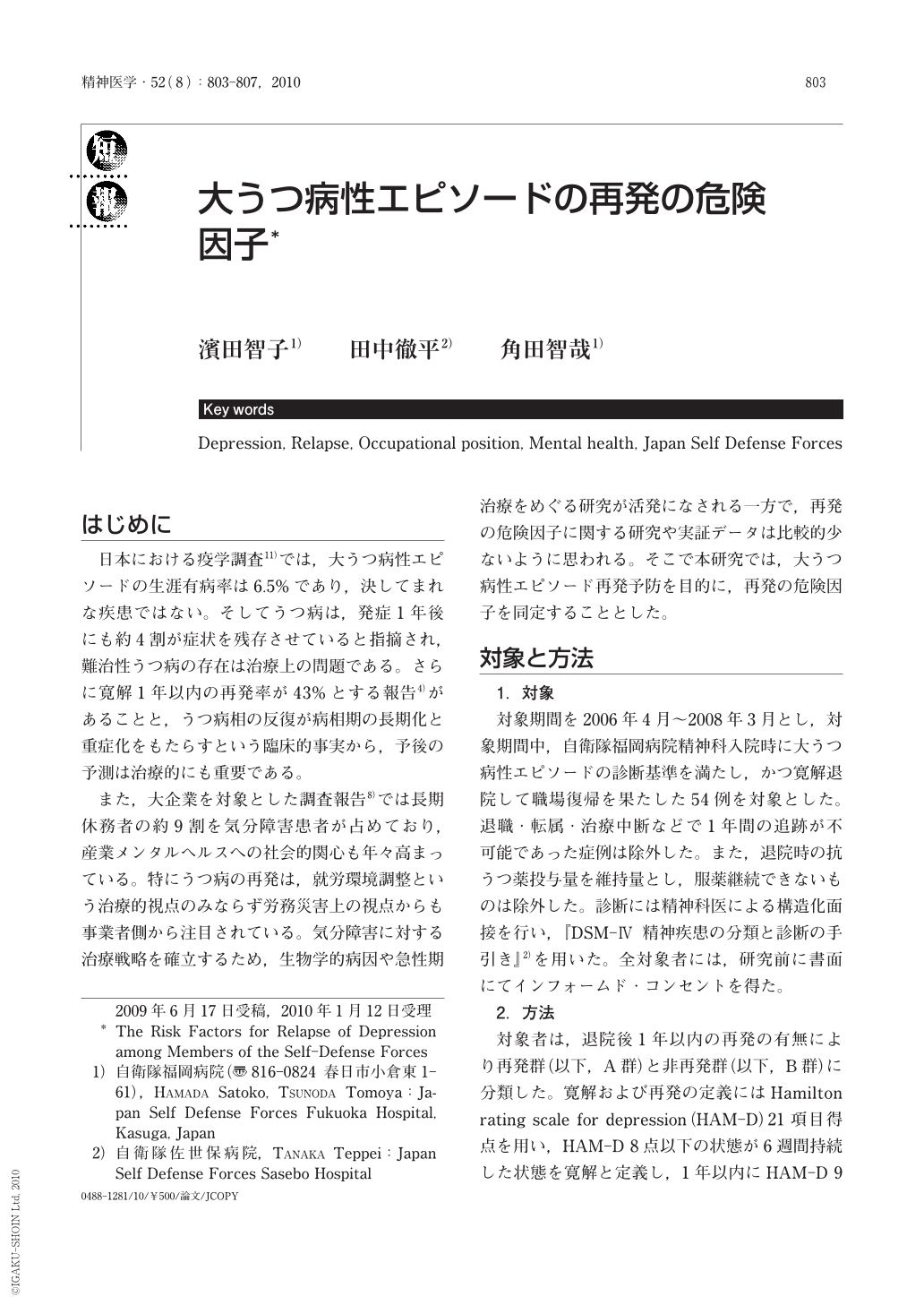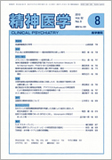Japanese
English
- 有料閲覧
- Abstract 文献概要
- 1ページ目 Look Inside
- 参考文献 Reference
はじめに
日本における疫学調査11)では,大うつ病性エピソードの生涯有病率は6.5%であり,決してまれな疾患ではない。そしてうつ病は,発症1年後にも約4割が症状を残存させていると指摘され,難治性うつ病の存在は治療上の問題である。さらに寛解1年以内の再発率が43%とする報告4)があることと,うつ病相の反復が病相期の長期化と重症化をもたらすという臨床的事実から,予後の予測は治療的にも重要である。
また,大企業を対象とした調査報告8)では長期休務者の約9割を気分障害患者が占めており,産業メンタルヘルスへの社会的関心も年々高まっている。特にうつ病の再発は,就労環境調整という治療的視点のみならず労務災害上の視点からも事業者側から注目されている。気分障害に対する治療戦略を確立するため,生物学的病因や急性期治療をめぐる研究が活発になされる一方で,再発の危険因子に関する研究や実証データは比較的少ないように思われる。そこで本研究では,大うつ病性エピソード再発予防を目的に,再発の危険因子を同定することとした。
BACKGROUND:Previous studies have indicated a relationship between the number of previous major depressive episodes and relapse of depression. However, the other risk factors for the relapse are still unknown. The aim of this study is to determine the other risk factors associated with the relapse of major depression.
METHODS:The study population comprised 54 inpatients who had experienced major depressive episodes at the Self-Defense Forces Fukuoka Hospital between April 1, 2006, and March 31, 2008. The diagnosis of major depressive disorder was establised on the basis of the criteria laid down in the DSM-Ⅳ and the depressive symptoms were assessed using the Hamilton Rating Scale for Depression (HAM-D). We retrospectively studied these patients and segregated them into 2 groups―the relapse and non-relapsed groups. The patients who were in remission at the time of discharge and relapsed within 1 year after their discharge were placed in the relapsed group. We included the following background factors in our study:sex, age, age at the first depressive episode, morbidity period, number of depressive episodes, HAM-D score at admission, whether or not suicide was attemped, marital status, complications, antidepressant dosage, social adaptation self-evaluation scale at discharge layoff period, training period for reinstatement, and occupational position. After adjustment for covariates, the odds ratio and 95% confidence intervals (95% CI) were calculated using binomial logistic regression analysis.
RESULTS:In this study, we observed that the number of depressive episodes (OR=2.11, 95%CI=1.03-5.04, p=0.06) and the occupational position (OR=3.6, 95%CI=1.33-17.47, p=0.04) were significantly associated with the relapse of depressive symptoms.
CONCLUSIONS:Our study reveals the importance of preventing the further relapse of major depressive disorder and the necessity of social action for improving the industrial mental health system as well as the work support provided at workplaces.

Copyright © 2010, Igaku-Shoin Ltd. All rights reserved.


